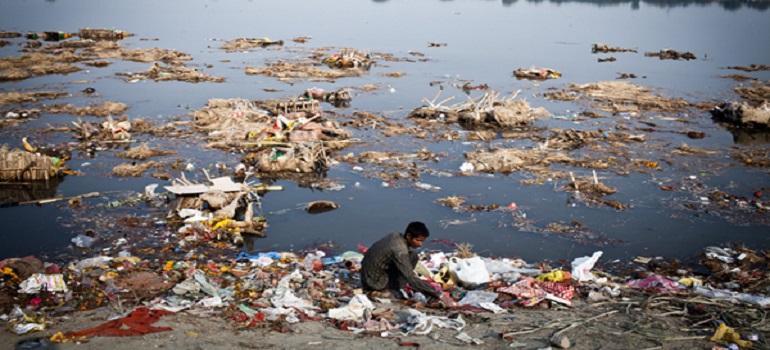
The National Green Tribunal (NGT) has directed the Ministry of Environment and Forests to finalise the “Extended Producer Responsibility” (EPR) regime for plastic waste within three months saying that steps taken by it were “too slow”.
A bench headed by NGT Chairperson Justice Adarsh Kumar Goel said unscientific management of plastic waste is a serious hazard for the environment and public health.
EPR (Under Plastic Waste Management Rules 2016) puts the onus on the manufacturers for the treatment, recycling, reuse or disposal of products after a consumer has used and disposed them.
“Regretfully, steps taken by the MoEF for finalising EPR regime are too slow. We note that the PWM Rules were framed in the year 2016 in place of 2011 Rules. There is no justification for long delay in finalisation of EPR models even after more than four years of the publication of the Rules. The same may now be finalised at the earliest, preferably within three months,” the bench said.
The NGT said that state level authorities also need to take necessary effective steps for enforcement, including coercive measures.
Environmental compensation and penal action regime proposed by the Central Pollution Control Board (CPCB) may be duly implemented by state PCBs, State Level Monitoring Committees and all other concerned authorities, the tribunal said.
“CPCB may continue to coordinate with the State Level Monitoring Committees, the State PCBs/PCCs or any other authorities with reference to the steps taken by the State Level Monitoring Committees in coordinating with the concerned Local Bodies, Gram Panchayats, Waste Generators, Producers, Importers, Brand Owners, Recyclers, Manufactures, Retailers and Street Vendors in accordance with the rules.
“Whenever, necessary CPCB may issue further directions from time to time in the light of experiences gained considering different suggestions and viewpoints, including the suggestions of the Oversight Committee for State of UP,” the bench said.
The tribunal was hearing a plea filed by CPCB alleging that states were not paying heed to the seriousness and ill effects caused by plastic.
Referring to its 2013-14 annual report, the CPCB had said there were a total of 689 unregistered plastic manufacturing units running in the various states and UTs including Andhra Pradesh, Jharkhand, Karnataka, Manipur, Puducherry, Punjab and Telangana.
As per 2014-15 there were 217 such units in Andhra Pradesh, Jammu and Kashmir, Jharkhand, Karnataka, Punjab, Uttar Pradesh and Telangana, it had said.
The CPCB had said it had issued directions under the Environment (Protection) Act, 1986 on June 30, 2016 to various municipal bodies but they paid no heed till date.
The apex pollution monitoring body has sought directions to states and UTs to prepare a plan of action for implementation of Plastic Waste Management Rules 2016 and its effective execution of such plan of action within the stipulated time frame as envisaged in the law.
It has sought imposition of penalty on the respondents as per “Polluter Pays Principle” for their non-cooperation and inaction which has resulted in huge loss of “health, soil, animal, crops and groundwater etc apart from exemplary damages.”

